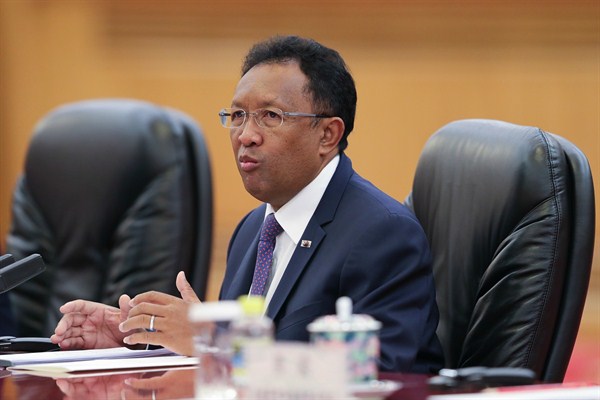Five years after emerging from its last political crisis, the island nation of Madagascar has once again entered a period of heightened tensions, this time over new electoral laws passed in the run-up to elections later this year. The current impasse is driven by familiar underlying factors, but it also features new fault lines and surprising alliances. In an email interview, Cornelia Tremann, an expert on Madagascar’s politics of development and the country’s relations with China, discusses what is behind the current standoff and the role outside actors might play in mediating it.
World Politics Review: What is the proximate cause of the latest political crisis in Madagascar?
Cornelia Tremann: The immediate cause of the current impasse is the political rally held in the capital, Antananarivo, on April 21, which was organized by the 73 opposition members of Parliament to protest new, recently passed electoral laws. The rally turned violent as police fired tear gas at demonstrators, several of whom later died from their injuries, although there are conflicting reports on the exact number of deaths. Madagascar’s High Constitutional Court has since ruled that some of those electoral laws are unconstitutional, leading the opposition to call for President Hery Rajaonarimampianina’s resignation.

